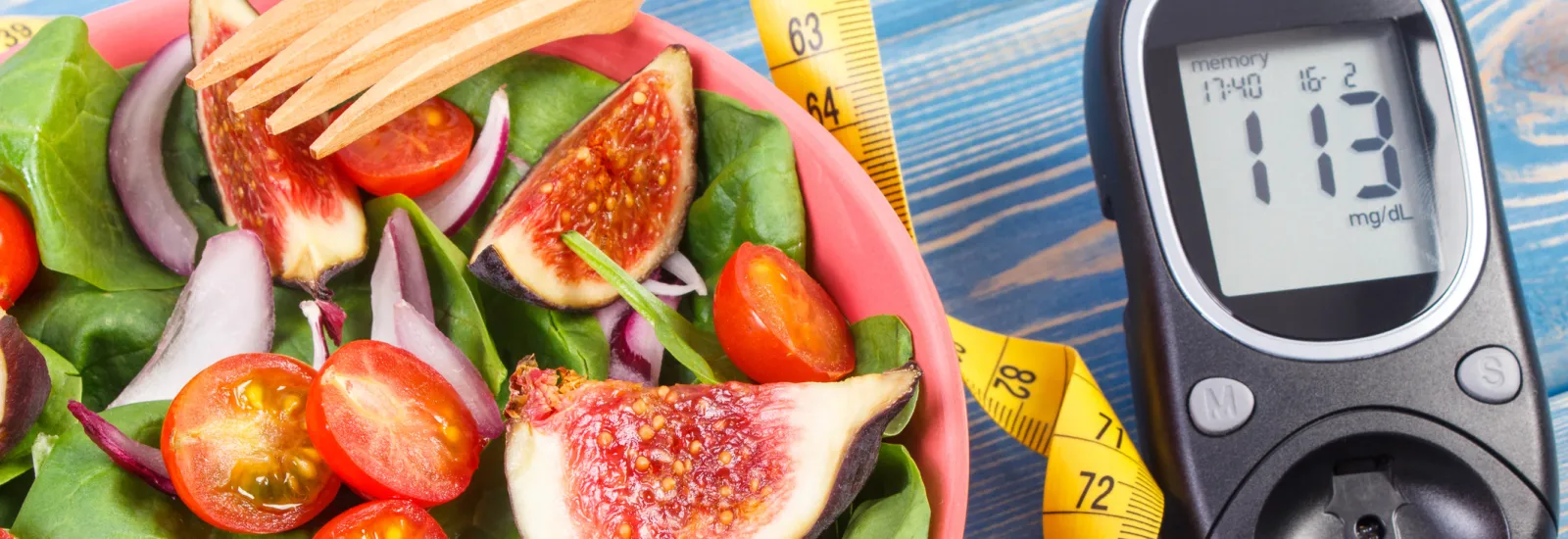
Diabetes nutrition: Eating right is a must
Keeping yourself informed about diet nutrition and healthy eating is a must when you have type 1 or type 2 diabetes. A well-rounded diabetes nutrition regimen helps keep your blood sugar levels in check lowering your risk for developing further health conditions. Dietary moderation balance and consistency are key components of diabetes management according to Christie Ferriell diabetes and nutrition education manager at Reid Health.
Carbohydrate moderation is key
It's important to pay special attention to your carbohydrates intake when you have diabetes because of carbohydrates' profound effect on blood sugar. Work with your doctor or dietitian to create a customized meal plan for you based on your schedule food preferences and insulin regimen (if applicable).
While individualized carb allotments per meal will vary the American Diabetes Association notes that getting 45 to 60 grams of carbs at each meal is a good place to start. Keep in mind that there's about 15 grams of carbs in a small piece of fruit a slice of bread or a cup of milk.
Balance food groups
When you have type 1 or type 2 diabetes it's important to get a good balance of protein carbohydrates (including fiber) and healthy fats spread evenly throughout the day. Doing so keeps your blood sugar levels in check and helps you feel full for longer periods of time. Be sure to incorporate the following:
- Healthy carbohydrate-rich foods. The University of California San Francisco Medical Center notes that foods like oatmeal brown rice bulgur ready-to-eat whole-grain cereals popcorn whole-grain breads fruits legumes vegetables (though some veggies are lower in carbs than others) low-fat milk soy milk and plain yogurt are good sources of carbohydrates.

- Nutritious protein-rich foods. The American Diabetes Association recommends grilled chicken breast unbreaded fish seafood very lean red meat low-fat cottage cheese reduced-fat cheese egg whites tofu nuts seeds and nut butters. Milk and yogurt are rich in carbs and protein.
- Healthy fats. Good sources of healthy fats include avocados olives fish oils plant-based oils nuts seeds and nut butters notes the American Diabetes Association.
Keep a consistent diet; control your calories
Achieving or maintaining a healthy weight is a must to maximize blood sugar control and keep chronic disease risks low when you have diabetes. If you take insulin stick with the meal plan your health care provider mapped out for you. Eat small meals that contain a good mixture of nutritious carbs protein and healthy fats every few hours. This will aid your blood sugar control and help you avoid overeating. If you're wondering how many calories you need daily check out the calorie chart provided by the American Diabetes Association.
Watch out for added sugars
Added sugar in foods can be problematic when you have diabetes because too much dietary sugar causes blood sugar to spike. The following high-sugar foods are examples to keep in mind and as the American Diabetes Association notes they each contain 15 grams of carbohydrates to boot:
- Two small cookies
- 1/2 cup of ice cream
- 1 tablespoon of syrup
- 1 tablespoon of honey
- 1 tablespoon of jelly or jam
- 1/2 cup (4 fluid ounces) of soda
Bottom line
Everyone would benefit from eating a healthy diet consisting of fruits vegetables whole grains protein foods dairy foods and healthy fats in moderate portions. But those with type 1 or type 2 diabetes must pay special attention to nutrition and health. Be aware the amount of carbohydrates you're eating avoid added sugar as much as possible and control your calorie intake to maintain a healthy body weight.

